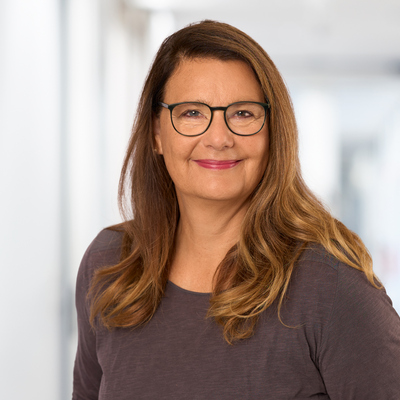KOPAL – Development and evaluation of a concept for interprofessional cooperation for patients with palliative care needs
Caring for people with incurable, progressive, non-oncologic primary diseases is a major challenge for primary care physicians. They often suffer from severe pain, shortness of breath, anxiety, or other distressing symptoms, and the need for palliative care is often substantial.
Early joint care planning by stakeholders from different professional groups can have a positive impact on the number of hospital admissions, symptom burden and quality of life of those affected. Currently, however, interprofessional care planning in the outpatient setting is not part of standard care.
Project goals
This is where the project "KOPAL - Development and Evaluation of a Concept for Interprofessional Cooperation for Patients with Palliative Care Needs" comes in: The overall goal is to improve the care of people at the end of life by intensifying outpatient interprofessional and interdisciplinary cooperation.
Subgoals of the project are:
- the structured early identification of care needs and requirements and joint care planning
- Reduction of symptom burden and potentially avoidable hospital admissions and interventions
- Improving the quality of life and medication of patients
Design
The research project is divided into three work phases:
- In the development and preparation phase, a concept for the implementation of a structured preliminary discussion between patient and specialized outpatient palliative care (SAPV) nurse will be developed. In addition, a concept for interprofessional telephone case discussions will be developed in cooperation with clinical and scientific experts as well as patients and relatives.
- In the recruitment and intervention phase, the developed concepts will be tested in practice. Within the framework of a cluster-randomized, controlled intervention study from 2020 to 2021, approximately 600 patients with advanced heart failure, COPD or dementia will be interviewed about their health situation in 56 GP practices. Participating GP practices will be randomly assigned to the intervention or control group. In the intervention group, the regular care of the patients is extended by a telephone case discussion between primary care physicians as well as nurses and physicians of the specialized outpatient palliative care (SAPV). Prior to the case discussion, a structured conversation takes place between a nurse specialized in palliative care and the patients in their homes.
- The evaluation phase includes a qualitative evaluation of the acceptance and practicability of the intervention in practice as well as the implementation strategy. In addition, the utilization of care services is determined by means of a health economic analysis and a cost-effectiveness analysis is conducted.
Cooperation partner
KOPAL is a joint project under the consortium leadership of the University Medical Center Hamburg-Eppendorf (Institute and Polyclinic for General Medicine, study director: Prof. Dr. Martin Scherer; study coordinator: Dr. Gabriella Marx). At the University Medical Center Göttingen, the Clinic for Palliative Medicine is also involved in the study. Further cooperation partners are the Hannover Medical School (Institute of General Medicine) and the Carl-von-Ossietzky University Oldenburg (Department of General Medicine).
Funding
The project is funded by the Innovation Committee of the Federal Joint Committee for topic-specific funding of health services research (funding code: 01VSF18024).
The project duration is from June 2019 to May 2022.
Contact
Interested GPs and SAPV teams from all over Lower Saxony and Hamburg are cordially invited to participate. An expense allowance per patient is provided for participation.

contact information
- telephone: +49 551 3967803
- e-mail address: uta.sekanina(at)med.uni-goettingen.de